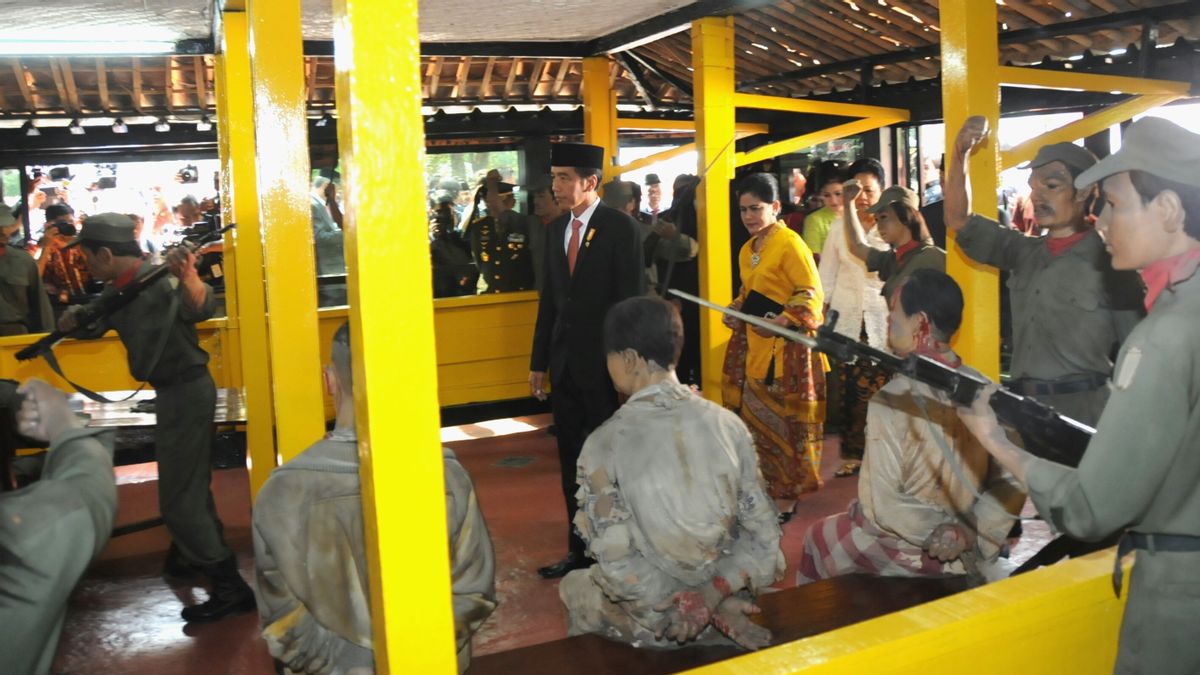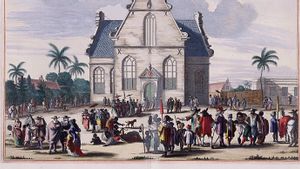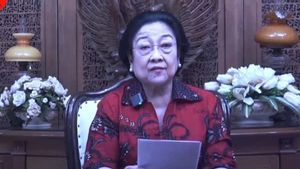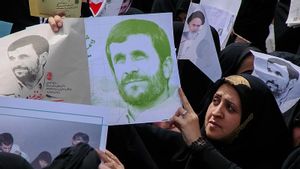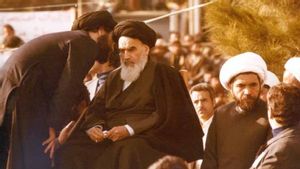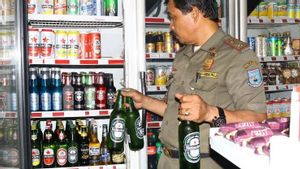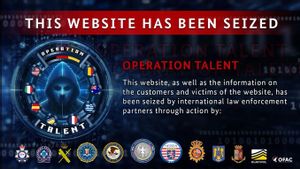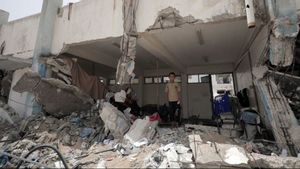JAKARTA Memories of today, eight years ago, April 19, 2016, President Joko Widodo (Jokowi) emphasized that the government has not yet decided on an apology for the 'cleaning' case of the 1965 PKI. Jokowi also admitted that the government would solve it and would not close it.
Previously, the matter of apologizing to victims or families of victims of the 1965 tragedy was known as sensitive. Only Abdurrahman Wahid (Gus Dur) had apologized. Other presidents have not.
The Nodal of the atrocities of the September 30th Movement (G30S) in 1965 continues to be a dark shadow of the history of the Indonesian nation. The kidnapping and murder of a series of Indonesian Army (AD) generals were considered heinous. The Indonesian government took a stand. The rebellion was successfully extinguished.
The figure who became the savior was no longer the Kostrad Commander, Major General Suharto (later known as the 2nd President of Indonesia). He was able to fill the vacuum of the AD leadership. Recently Suharto also considered the Indonesian Communist Party (PKI) to be the mastermind of the G30S.
The foundation made Suharto move further. He carried out efforts to clean up the PKI. That said, the victims reached millions of people. This effort is considered by many parties to seem unfair and heinous. Most of those who become victims have nothing to do with the G30S.
The cleaning of the 1965 PKI then became a stain on the past. Not many presidents dared to openly discuss the issue. However, when the government was led by Gus Dur everything changed.
Gus Dur's attitude towards the tragedy of cleaning up the 1965 PKI is clear. For him, even though the PKI was the mastermind, it would certainly not be justified if other innocent PKI sympathizers had to be punished. He apologized to all victims and their families for the 1965 tragedy.
As a form of seriousness, he proposed that the MPRS Decree No XXV/1966 regarding the dissolution of the PKI and the prohibition of the spread of the teachings of marxism, communism, and leninism be repealed immediately. The apology raises the pros and cons. The party who counters said that the statement appeared in Gus Dur's capacity as chairman of PBNU, not representing the state's attitude.
By apologizing, Gus Dur also broke the shackles of death for a long time. Nearly a quarter of a century: that every PKI person, as well as every child, wife, husband, deserves to be killed or removed. Gus Dur dumped an attitude that did not want to ask again: is it fair that has occurred since 1965?
"Even if the leadership of the PKI is very guilty in 1965, it will still be very tyrannical of the punishment imposed on everyone, as well as their relatives, who are adrift even though they are not directly with the party," said Goenawan Mohamad in the book After Revolution No More (2001).
The wait for an official state apology to victims of the 1965 PKI cleaning and other human rights violations continues. In fact, the era of the Jokowi government. Many times the government was asked to apologize.
The government will take a stand that it will not be sorry for the 1965 incident. However, over time, hopes to apologize began to appear. This was seen when Jokowi attended an Indonesian family meeting in London, England, on April 19, 2016.
SEE ALSO:
Jokowi emphasized that until now the government is negotiating. As a result, the government has not been able to decide regarding the state's apology to the victims of the 1965 tragedy. Jokowi promised the government would not close its eyes.
"Now towards a settlement... there has been no decision. We want this to be done, don't be a burden on the future. We want it to be over, not a confrontation. I heard, I didn't close my ears," said President Jokowi, responding to a pen named Soe Tjen Marching as quoted on the BBC website, April 19, 2016.
The English, Chinese, Japanese, Arabic, and French versions are automatically generated by the AI. So there may still be inaccuracies in translating, please always see Indonesian as our main language. (system supported by DigitalSiber.id)
